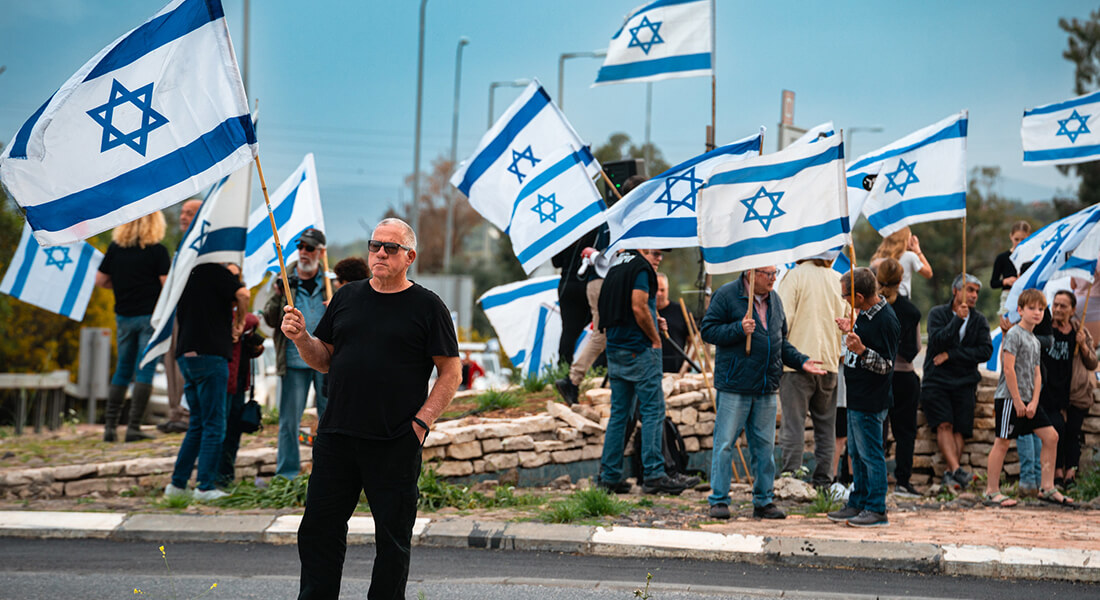Psychologists: Hoping for victory can stand in the way of peace
Does it make a difference whether you hope for victory or peace in armed conflicts? Yes, according to a group of researchers who have investigated the importance of shared hope.

Research on group-based hope typically focuses on the positive effects of hope, such as peace and harmony. However, a new research project shows that another collective hope can stand in the way of peace in armed conflicts: the hope of defeating the enemy.
In particular, the researchers have investigated what has been behind the hopes of Israeli Jews in recent years' conflict with the Palestinians.
"Here we see that the hope of victory for the Israelis is clearly associated with more support for extreme war policies, while the hope for peace generally shows the opposite picture," says Milan Obaidi, Associate Professor at the Department of Psychology at the University of Copenhagen.
In another study, the researchers examined the hopes of Pakistanis in the country's dispute with India. Again, only the hope of victory significantly reflects violent, extremist intentions and rejection of compromise.
When hope is divided
But is it really that simple to hope for either victory or peace in an armed conflict? No, according to a third study conducted by researchers. Again, they looked at the hopes of Israeli Jews and found a significant proportion of ‘dual hopers’ – people who hope for both peace and victory.
It may seem paradoxical that one can hope for both. However, the researchers believe that the high number of dual hopers reflects the complex and multifaceted nature of the Israeli-Palestinian conflict, which can provoke a desire for a peaceful resolution – and in the same people, a need to assert their rights and achieve victory.
"Our results indicate that even though the Israeli left has weakened, there is still a widespread desire for peace – even among right-wing individuals who have a strong hope for victory over the Palestinians," says Milan Obaidi.
In a final study, the researchers find that hopes for either victory or peace fluctuate with the intensity of the conflict.
"As the conflict between Israel and Palestine intensified in the spring of 2021, there was a strong increase in hopes for victory, accompanied by a significant decrease in hopes for peace. This shift was accompanied by an increased willingness to support and participate in extreme acts of war and violence – bordering on war crimes," says Milan Obaidi.
Dim the hope of victory to promote peace
According to the researchers, the new insights into collective hopes for victory and peace can be used to counter extremism and promote reconciliation between warring parties.
"Our study shows that it can actually be beneficial to reduce the hope for victory, because this hope can lead to extremism and thus exacerbate conflict," says Milan Obaidi and elaborates:
"We suggest that trusted institutions and leading figures of warring parties inspire hope for peace and reduce the expectation of an imminent victory. This can be done by emphasising the high costs of war and the limits of power," he mentions.
Milan Obaidi notes that when you force the so-called dual hopers to choose between victory or peace, most of them hope for peace – even though most of them are on the right side of the political landscape.
"This bodes well for the prospects of peace. But the willingness of dual hopers to engage in violence and support radical policies is almost as high as those who only hope for victory. This emphasises the need for interventions that dampen the hope for victory and instead strengthen the hope for peace," he concludes.
Contact
Milan Obaidi
Associate professor
Department of Psychology
Mail: milan.obaidi@psy.ku.dk
Phone: +45 35 32 91 76
Simon Knokgaard Halskov
Press and communication advisor
The Faculty of Social Sciences
Mail: sih@samf.ku.dk
Phone: +45 93 56 53 29
